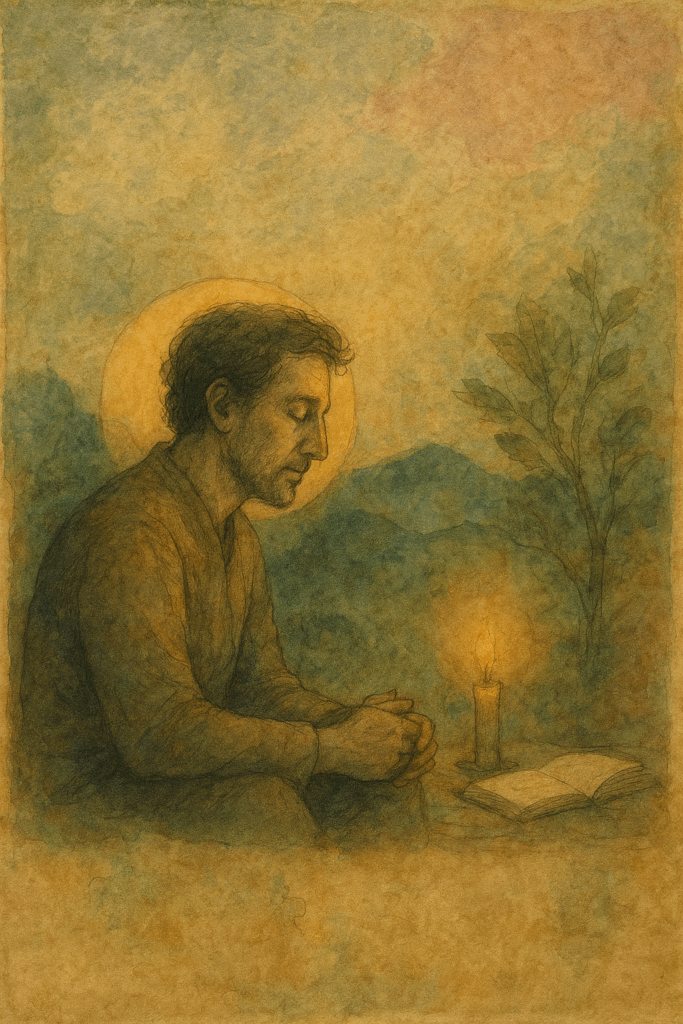
A Soulful Alternative to Organized Religion
A Religion of One’s Own by Thomas Moore is a quiet invitation to rethink what it means to live a soulful, spiritual life outside the confines of organized religion. Moore – best known for Care of the Soul – brings a depth of experience as a former monk, psychotherapist, and scholar of religion and mythology. This book builds on that lineage, offering a rich tapestry of insights for those yearning for meaning in a secular age.
Reclaiming the Sacred on Personal Terms
At the heart of Moore’s thesis is a simple but powerful idea: that religion need not be something we inherit or conform to, but rather something we can craft ourselves. This is not about rejecting the sacred but reclaiming it on one’s own terms. For Moore, personal religion is about cultivating a spiritual practice that integrates with daily life – through ritual, art, nature, relationships, study, and imagination.
A Meditative Guide to Spiritual Practice
The book is structured in a gentle, meditative tone, with Moore guiding readers through the foundations of a soulful spirituality. He doesn’t advocate for a particular set of beliefs but encourages us to create a “religious sensibility” – a way of living that honours mystery, depth, and transcendence, while remaining rooted in everyday experience.
Drawing from Tradition Without Being Bound by It
What makes Moore’s approach distinctive is that he never dismisses traditional religion outright. Instead, he honours the wisdom embedded in the world’s faith traditions while acknowledging that many people today feel disconnected from institutional religion. His aim is not to deconstruct but to reconstruct – drawing from the old to build something new and personally meaningful.
Practicing a Creative, Contemplative Spirituality
Throughout the book, Moore explores what this might look like in practice. He encourages practices such as journaling, reading sacred texts (not just from religion but also poetry and philosophy), creating altars, observing the seasons, and finding spiritual mentors. He also champions the arts and the imagination as essential to spiritual growth. In this way, A Religion of One’s Own bridges the spiritual and the aesthetic, encouraging a life that is contemplative and creatively engaged.
A Response to the Modern Spiritual Hunger
Moore also speaks candidly about the challenges of modern life – the busyness, the disconnection, the thirst for purpose. He suggests that cultivating a personal spirituality is not a luxury but a necessity in a world that often feels soulless. His writing is deeply human, grounded in warmth, compassion, and humility.
Gentle, Not Prescriptive – A Book for Seekers
However, some readers may find Moore’s vision a little too diffuse. His ideas often meander, and while this can feel poetic, it may leave those seeking clear structure or doctrinal alternatives wanting more. Others may bristle at his embrace of mysticism or his lack of attention to social justice. But to critique him on these grounds is to miss the point: Moore is not offering a new orthodoxy; he is offering a way of listening – to the self, to the soul, to the sacredness of life itself.
A Companion on the Inward Journey
A Religion of One’s Own is ultimately a book about inward freedom. It speaks to those who feel spiritually homeless, offering not a roadmap but a companion. Moore doesn’t claim to have the answers, but he does offer a deeply reassuring message: that you can shape your own path, and that doing so is a worthy, even holy endeavour.
Final Thoughts
This is a book for seekers – for those disillusioned with institutions but not with the mystery of existence. It’s for artists, introverts, nature-lovers, and quiet thinkers who long for a deeper, more soulful way of living. Moore’s message is both ancient and timely: the sacred is not lost. It simply needs to be reimagined – within us, among us, and through the lives we choose to create.
If this book resonated with you, you might enjoy others under the theme of Soulful Living & Inner Growth. These reviews explore books that invite deeper reflection, nurture emotional and spiritual wellbeing, and offer gentle guidance for living a more meaningful and authentic life. Let them accompany you as you slow down, look inward, and reconnect with what truly matters.
